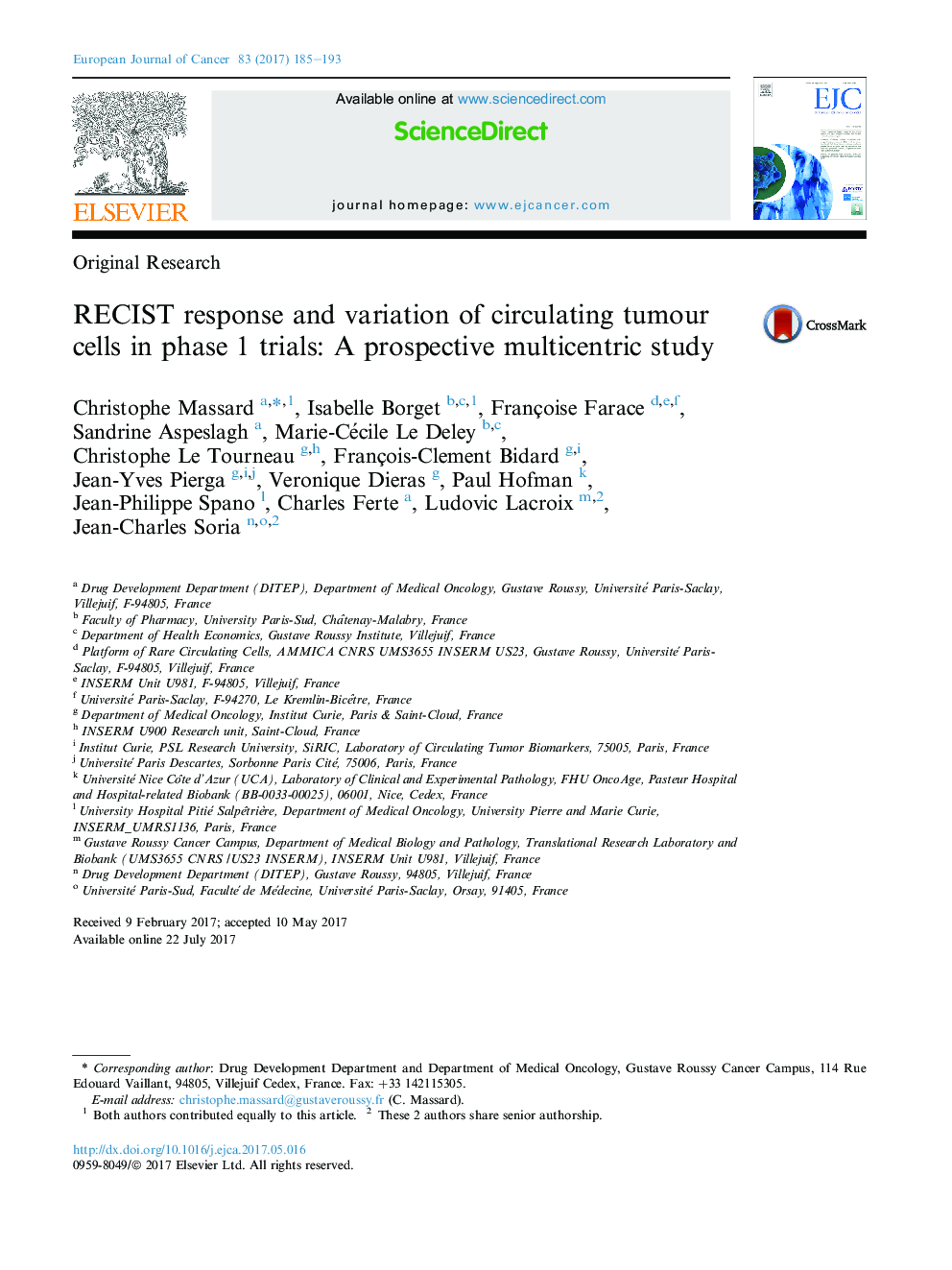| Article ID | Journal | Published Year | Pages | File Type |
|---|---|---|---|---|
| 5526378 | European Journal of Cancer | 2017 | 9 Pages |
â¢Better patient selection in phase I is an important issue for physicians and patients.â¢Particularly for patients with advanced metastatic cancer referred to phase I units.â¢CTCs counted at baseline and after starting experimental therapy could be a promising biomarker.â¢In our study, no correlation found between early CTC change following therapy and RECIST response.
BackgroundCirculating tumour cell (CTC) counting could be a new biomarker for better evaluation of tumour response to molecules tested in phase I trials.Patients and methodsConsenting patients with advanced metastatic cancer referred to various phase I units were enrolled prospectively in this study. CTCs from 7.5 ml of whole blood drawn at baseline and after starting experimental therapy were counted using the CellSearch system, and tumour response was assessed using RECIST 1.1 criteria at baseline and 2 months after treatment initiation.ResultsBetween March 2010 and May 2013, a total of 326 patients were enrolled, among whom 214 were evaluable (49% male, median age = 56; main cancer types: lung [28], colon [53], ovarian [18], breast [28]). At baseline, we detected â¥1 CTC/7.5 ml in 113/214 patients (53%), and at day 30, we observed â¥1 CTC/7.5 ml in 103/214 patients (48%). Two months after treatment initiation, 11 (5%) of the 214 patients were classified as having a partial response, with no CTCs in 9 of them or a decrease in the CTC count after therapy. In contrast, among the 104 patients (49%) classified as having progressive disease, 38 patients had a higher CTC count. The remaining 99 patients (49%), 33 of whom (33%) had a lower CTC count, were classified as having stable disease. The sensitivity and specificity of CTC variation for predicting progressive disease were 41% (32-51%) and 80% (73-88%) respectively.ConclusionAn early CTC change following therapy does not correlate with RECIST response in patients with advanced cancer enrolled in phase I trials.
